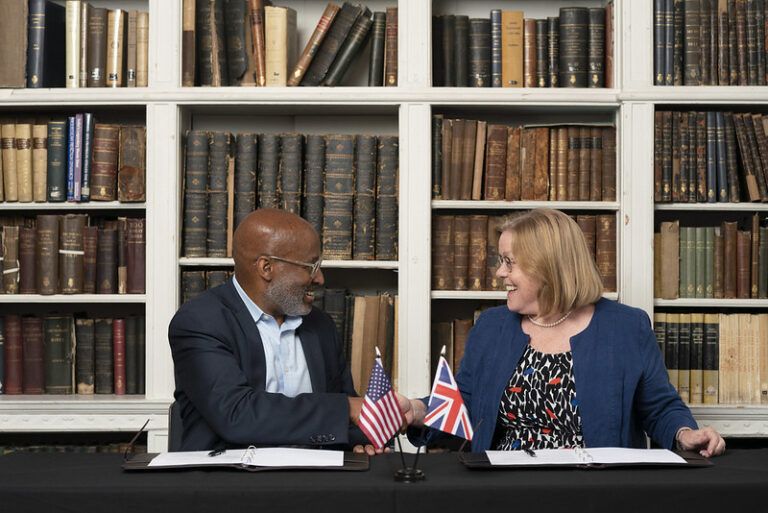Leaders in energy storage research in the United Kingdom and the United States have signed a memorandum of understanding (MOU) establishing a cooperative relationship in support of projects to develop and improve high-capacity batteries as well as new methods for battery materials recycling for their future usage in electric vehicles for a more sustainable world.
The MOU was signed at the Royal Institution, during the first in a series of US UK workshops on electrochemical energy storage, by Professor Pam Thomas, chief executive officer of the Faraday Institution in the UK, and Dr Peter F. Green, deputy laboratory director for science and technology and chief research officer of the U.S. Department of Energy’s (DOE’s) National Renewable Energy Laboratory (NREL). Both the workshop and the MOU identify areas of mutual interest in areas of key battery research, such as to reduce reliance on critical materials in cathodes and to ensure recyclability of batteries.
“The depth and breadth of scientific knowledge across the US National Labs and the UK’s world-leading universities is what allows for this kind of innovative partnership,” said Professor Pam Thomas, CEO of the Faraday Institution. “By strengthening the connections amongst the best battery research groups in the US and the UK, we will accelerate discovery and much needed breakthroughs in high-capacity cathode materials and develop recycling routes for lithium-ion batteries.”
“An important goal is to establish a sustainable supply chain for critical materials, such as cobalt, and to establish a lithium battery recycling ecosystem to recover and reintroduce these materials into the battery supply chain. Electrochemical energy storage is one of DOE’s priorities, and collaborative activities have been established between the national laboratories in this area,” said Peter F Green, Deputy Laboratory Director, Science and Technology, NREL. “This MOU leverages the enormous and historic strengths of the research enterprise in energy storage in both the US and the UK to accomplish this.”
UK Business Minister Lord Callanan said: “The signing of this memorandum signals the UK’s continued commitment to international research collaboration in areas of strategic importance, such as energy storage. It is vital the UK continues to make efficient use of critical minerals through partnerships like this one and embed their re-use, recycling and recovery in the supply chain, as laid out in our new Critical Minerals Strategy.”





